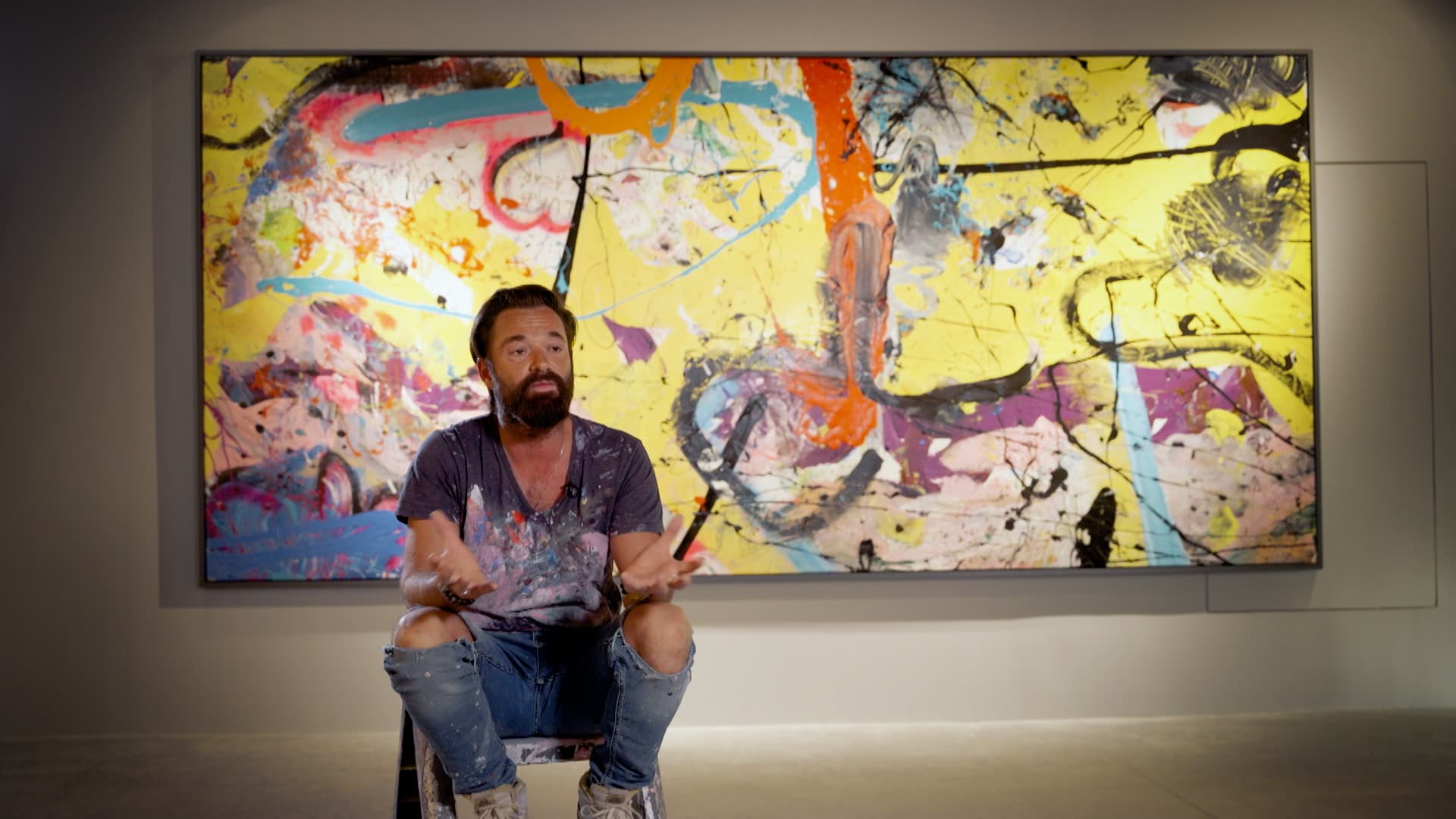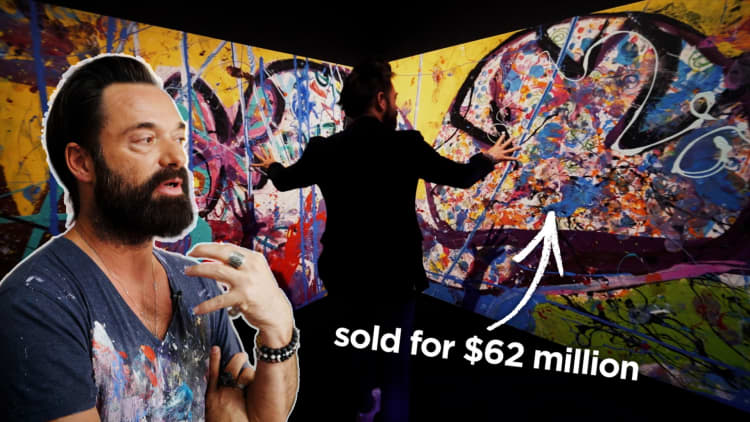Meet the Dubai artist whose work has sold for millions — and turns down 99% of prospective buyers


Contemporary artist Sacha Jafri prides himself on his unique way of working.
His “huge” Dubai studio includes three gallery spaces, a digital space, an office and a boardroom. He even has a room dedicated to nonfungible tokens, or NFTs.
The space is home to around 40 paintings, largely made up of his retrospective collection, along with one-off pieces and commissions.
“Most artists are linked very heavily to galleries … whereas with this setup, I can actually develop my own relationships with my clients and really build that collector base all over the world,” Jafri told CNBC’s The Art of Appreciation. He also has a London gallery space for European and U.S. buyers.
Jafri, a British artist, studied at Oxford University’s prestigious Ruskin School of Art and has been working for nearly 30 years. Known for his magical realist art, he creates work in a “meditative state,” he said, using music to get into the right headspace and often painting for many hours at a time.
The artist Sacha Jafri at his studio in Dubai, U.A.E. He said he goes into a meditative state when creating his work.
Sacha Jafri
“It’s weird, also, because I’m painting for the subconscious. So, I’m in a meditative state, I’m in a complete trance, I have no clue what I’m doing. So, it’s weird when things are created like this, that tell a very strong narrative, which I’ve not got in my head,” Jafri said.
Jafri created “Journey of Humanity,” a 1,595.76 square meter painting which in 2020 became the world’s largest art canvas. He sold the painting at an auction for children’s charities.
Split into 70 sections, the huge artwork was bought by entrepreneur Andre Abdoune for $62 million in 2021 — making Jafri one of the world’s most expensive living artists. (The record was beaten in 2022 by Emad Salehi, whose “The story of the ball” piece came to almost 10,000 square meters.)
Jafri has a canny approach to selling his work. “I say no to, I guess 99% of people that want to buy my work. So, I would guess one in 100, I will say yes, you are the right person for that piece,” he told CNBC.
“That’s my sacrifice I’m making as an artist. These are fragments of my soul. And I need to know that they are going to be loved and looked after,” he said.
Jafri creates around 12 paintings over a two-year period and has around 150 people on a waiting list to buy, he said. “I want to paint till the day I die. In order to do that, I need that steady progression, where my work is going up in value every single year,” he said.
Artist Sacha Jafri painting on the helipad at the Burj Al Arab Jumeirah hotel in Dubai. He held an exhibition of 30 works on the landing pad in 2022.
CNBC International
Buyers who missed out on a piece might be first on the list for Jafri’s next collection, he said. “And that keeps the interest in your work, which keeps the supply low and the demand much higher, 10 times higher. And then your value will keep growing,” he said.
He also avoids selling his work at auction. “You don’t want your work in auction too early, you don’t want a boom-bust,” he said. If a picture doesn’t achieve its low estimate at a public sale, it can reduce its perceived value and lessen demand, for example.
Some artists are experimenting with using artificial intelligence — and generative AI — in their work, while others see it as a threat.
For Jafri, there’s no debate. “AI is not art. AI is very, very helpful in life in humanity moving forward, it’s very helpful to create quick imagery that can connect with a human being and transmit a message, advertising, marketing, graphic design, that type of stuff. But it’s not a tool to help artists in any shape or form. True art has to be created through love and empathy,” he said.
Watch The Art of Appreciation on CNBC International









